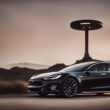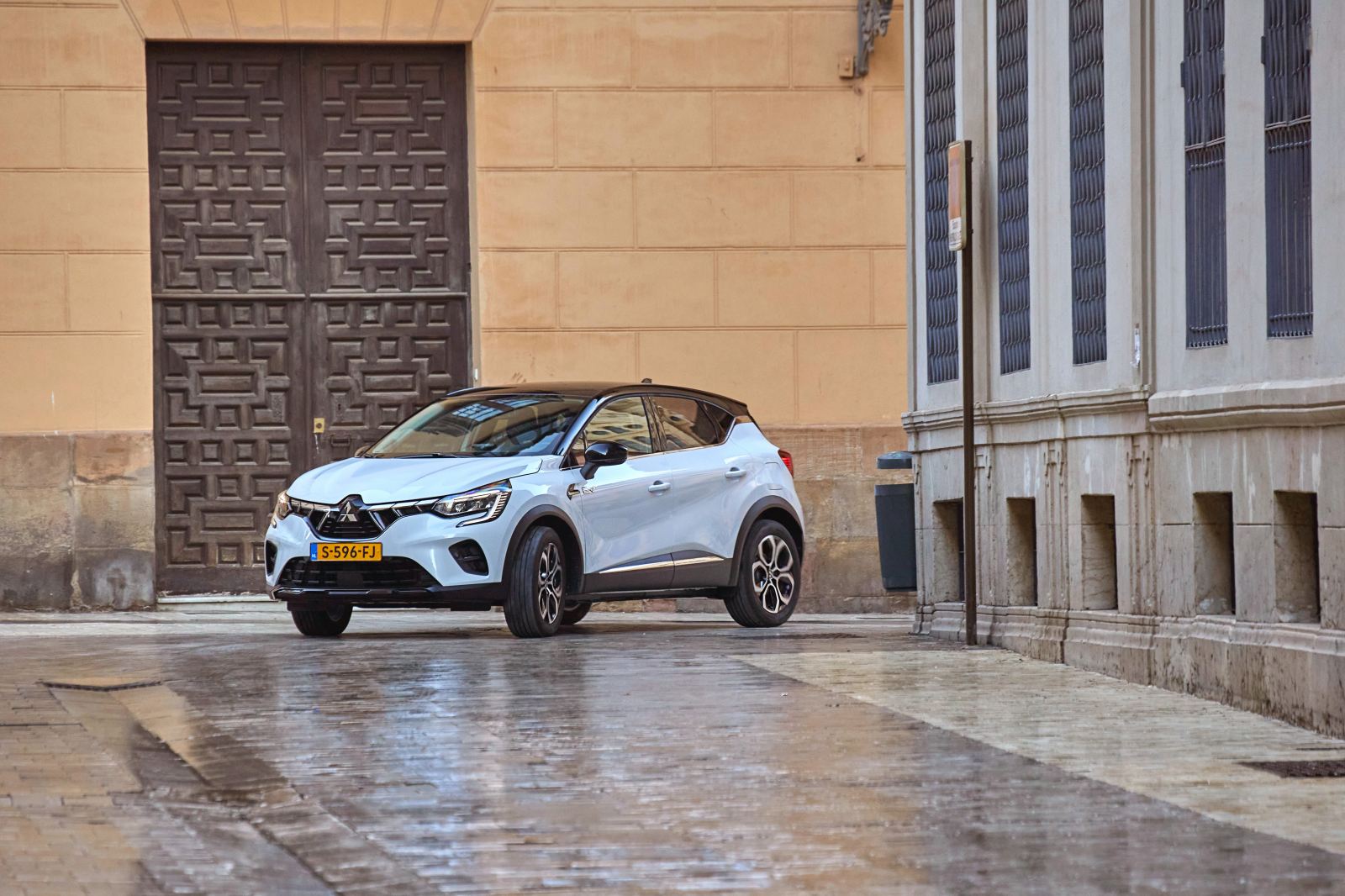Contents Show
Chinese car manufacturers have already burned their fingers on the German car market. Now they are back and have learned from the mistakes of the past.
Seductively cheap cars garnished with extras - that's how they had it in the 70s Japanese and in the 90s the Koreans managed to establish themselves as permanent fixtures on the German car market. A first attempt by Chinese automakers in the noughties using a similar recipe failed miserably. Nevertheless, the number of Chinese car manufacturers who sell their models in Europe and Germany has been growing for several years. For 2022, several car brands from the Middle Kingdom have even announced themselves.
According to experts, however, the new commitment follows a strategy of slow steps with long-term goals. "Of course, the trees will not grow to the sky for the Chinese in Germany in 2022 either, but it will be an important year in order to spread oneself strategically and in terms of awareness," says automotive economist Ferdinand Dudenhöffer, assessing the medium-term opportunities for Chinese car manufacturers. With significantly more attractive, electrically powered cars and smart sales models, they should be able to establish themselves on the German market this time.
Gap dimensions should fit
In retrospect, the first attempt in the noughties seemed frighteningly clumsy. The manufacturer Shuanghuan, which has long since disappeared, brought in about the windy importer China Automobile X5clone with the uncomfortably boastful name CEO to Germany, only to reveal incomprehensible weaknesses there after a short time. A few 10.000 kilometers were enough for the sheet metal skin of the few copies sold to show gaps in which entire Mao Bibles could disappear. Landwind and Brilliance, whose cars the ADAC crashed into a wall with devastating results, also failed miserably.
Since then, however, a lot has changed on the product side. Manufacturers in China have also learned a great deal thanks to the transfer of know-how through many joint ventures. In the meantime, in many cases, models intended for the world market are also being developed globally in China. Several manufacturers from China have opened development and design centers in Germany, among other places, in recent years. In addition to the know-how from Europe, European brand identities are also used in several cases to make Chinese cars socially acceptable.
Europe is expensive
Exactly with this recipe, however, the attempt to revive the Borgward brand failed. The SUV models on the old Saab platform were beefed up in a very promising way with modern technology and contemporary design from Germany and the Borgward rhombus. But the parent company Foton ultimately lacked the financial breath for the European adventure. Only a handful of BX-7 made it to Germany. The Borgward brand has been quiet since 2020.
The strategy of the Geely Group, which already secured its entry ticket for the European market in 2010 with the takeover of the Swedish car manufacturer Volvo, is proving to be much more sustainable. In addition to the euphonious name, technical know-how and production facilities, the Swedes also brought a dealer network into the marriage. We have become accustomed to Volvo and, more recently, Polestar models with a Swedish identity and Chinese origin for a number of years. Also with a European identity, Geely will in future use the Smart brand, which has just been spun off from the Daimler group. It now has its headquarters as new Smart Automobiles in Ningbo, China. From there, a compact SUV model with a battery-electric drive is to come to Europe as early as the beginning of 2023 as a genuine Smart.
Chinese Volvo on subscription
But Geely is not only relying on the acquisition of well-known brand names. With Lynk & Co, the car company has launched its very own brand with a purely Chinese identity, which also relies on a young sales model. The 01, a sister model of the Volvo XC40, is currently being sold primarily on a subscription basis. Subscriptions could become a preferred sales model for newcomers from China, which enables market entry without major investment hurdles.
Ferdinand Dudenhöffer expects that the current major upheavals in car sales will play into the hands of the Chinese: “The times when car dealers were used with power and high budgets are over. Car subscriptions reduce sales costs enormously and open up completely new opportunities for young companies. The car subscription market will be one of the really big drivers of change in the car market. And car subscriptions are an excellent tool for allowing newcomers to enter the market quickly. All risks are taken from the customer. This gives young and new brands great advantages.”
A few years before Geely, the SAIC Group, which this year ranked 60th among the largest companies in the world, made the leap to Europe under the guise of a European brand. As early as 2007, SAIC incorporated the trademark rights of the traditional British brand MG. An associated plant in Birmingham was initially used for final assembly of cars produced in China, which were reserved for the British market.
But since the end of 2019, it has also been sold in continental Europe. First in Holland, then in Norway and Germany. MG now offers four series in Germany. In addition to an SUV with a plug-in hybrid drive, there are two electric SUVs and the MG5 electric station wagon. This year, SAIC, alias MG Motors, was able to multiply its sales in Europe and sell several 10.000 cars. By 2025, the goal is to reach six-digit numbers.
Good price-performance ratio
But manufacturers from China have long had the self-confidence to no longer hide their cars for Europe and Germany behind a pseudo-European brand. One of the first Chinese with a purely Chinese identity is the Aiways brand, which has been selling the U2020 electric SUV in Germany since 5 via the Euronics electronics retail chain. The Stromer is certainly not a game changer, but its appealing design, a modern and spacious interior and the interesting price in relation to performance and range obviously arouse interest. Aiways has been able to sell several thousand copies of the U5 throughout Europe. In 2022, the U6 will be the second model, with which Aiways wants to significantly increase sales.

Nio has also just started in Europe. This year the start was made in Norway. The electric car manufacturer, founded in 2014, wants to position itself as a lifestyle and premium brand. The sales figures remain modest. But Nio wants to expand significantly next year - also to Germany. Visually and technically, models like the ES6, ES8 or ET7 need not fear any comparison. A special feature of the Nio electric vehicles, which already have a long range, is their battery replacement system, which already has several thousand stations in China and should also simplify long-distance use in Europe. In Germany, Nios exchange stations are also to be set up at Shell gas stations, among other places.
Premium from China?
Norway is popular as a stepping stone to Europe for e-car start-ups, as all-electric vehicles have high purchasing power and demand here. Xpeng is also taking advantage of this fact for its European adventure, which will start in 2020. Like Nio, Xpeng relies on a premium positioning and noble models with a lot of performance and range. The sporty sedan P7, which is recommended as an interesting alternative to Tesla's Model S, has just started. Xpeng has opened a headquarters in Amsterdam.

Definitely next year Great Wall Motors wants to compete in Germany with the two brands Ora and Wey. Both brands presented themselves at the IAA in Munich with their own large stands. Ora offers purely electrically powered lifestyle compacts with Porsche Mini flair. As announced at the IAA in September, Great Wall wants to set up a production facility in Europe and introduce five Ora models by 2025. It starts with the 30.000 meter long five-door Cat 4,24, which costs around 01 euros and has a 126 kW/171 hp electric drive and a range of 400 kilometers.
Wey relies on luxurious SUVs like the Coffee 01 with a plug-in hybrid drive. A first WEY shop, like the European headquarters, is to be built in Munich. Nine more city stores, ten pop-up shops and 60 service stations are planned. A first European production facility is under construction. That doesn't sound like a short-term adventure.





